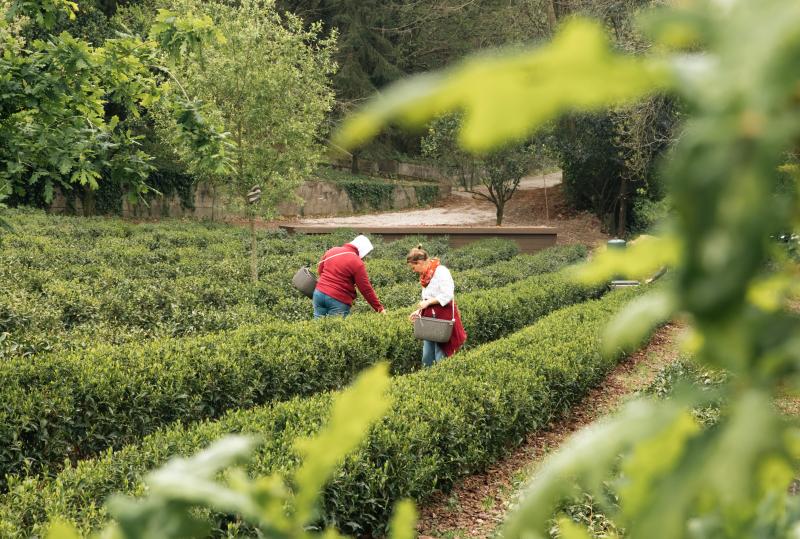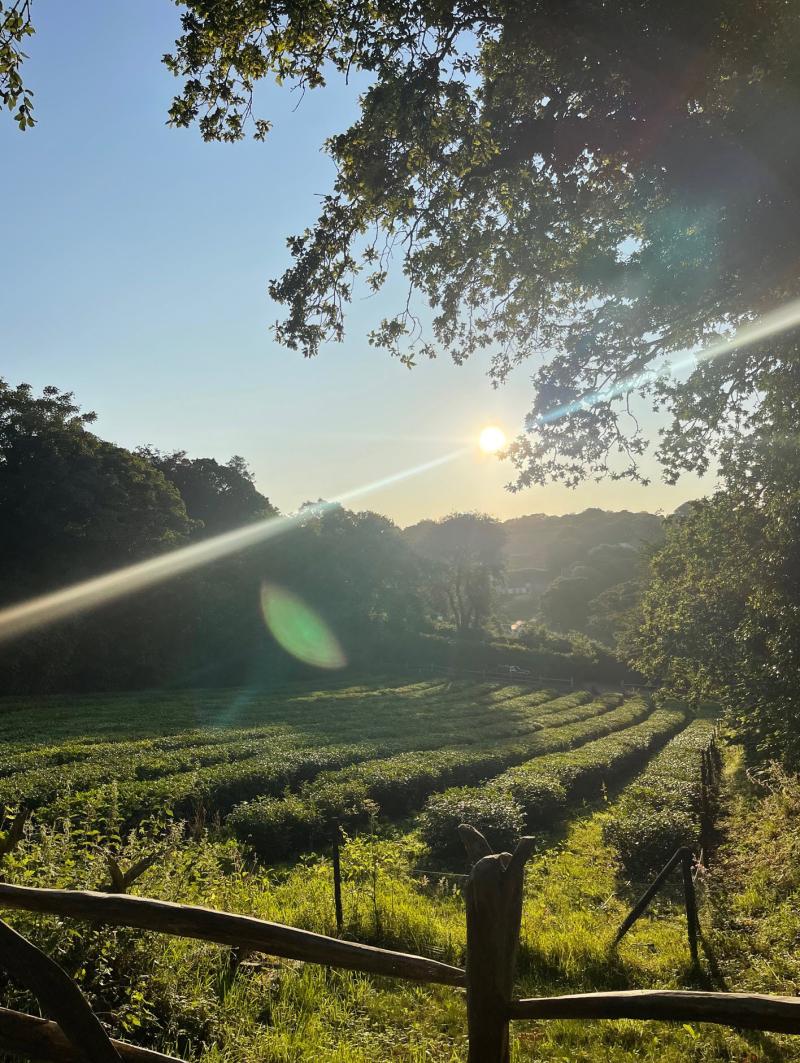European teas could be a good alternative to the more common Chinese, Indian and African teas, new research suggests.
The study, titled Comparative Analysis of Hot and Cold Brews from Single Estate Teas Grown Across Europe: An Emerging Specialty Product, was conducted by researchers and academics from Europe. It found that teas grown in Europe are good quality teas that are endowed with levels of health-promoting polyphenols and flavonoids and have an antioxidant capacity similar to those grown in other parts of the world.
Although tea cultivation is not atypical in Europe, many experiments have been done for growing Camellia sinensis plants in the region over the last 150 years, with the earliest initiatives in Portugal and France.
Though initiatives have been taken, there has been no comprehensive study done on the health promoting properties in view of the antioxidant profile.
“The reason for undertaking this study was simply that no one had studied European teas in thorough up until now, in terms of antioxidant activity,” explained Elisabetta Damiani, who works with the Department of Life and Environmental Sciences at the Universita Politecnica delle Marche in Italy. She’s also the corresponding author of the European-grown tea study. “And so, I thought, this would be an interesting aspect to investigate, considering the increasing interest in specialty teas and the growing tea community in Europe that led to the founding of the Tea Grown in Europe Association in 2016. Studying tea is one of my areas of research. Having grown up in Malawi on a tea estate for 20 years, I am naturally inclined to know as much as I can on tea.”
Seven European Tea Gardens Participated in the Research
For the research, 13 tea samples were taken from seven gardens, whose leaves were harvested in 2021. The tea gardens that participated are all members of the association Tea Grown in Europe, whose objective is to promote, in Europe, an economic activity domain based on the cultivation of tea plants on micro plantations of the European territory.
The tea growers and members of Tea Grown in Europe Association who decided to participate in the recent study include: Compagnia del Lago Maggiore (Italy), Het Zuyderblad (The Netherlands), Casa del Tè Monte Verità (Switzerland), Tschanara Teagarden (Germany), Jersey Fine Tea (Jersey, a British Crown Dependency that forms part of the British Isles), Chà Camèlia (Portugal), and Agrarian Devt. Services Sao Miguel, Azores (Portugal).

”Our main findings were that European teas are good quality teas endowed with levels of polyphenols, flavonoids and antioxidant capacity that are similar to teas from other parts of the world,” said Damiani. “This is an important aspect, as it would aid consumers in choosing the tea that they would prefer regardless of the health properties, since they are all quite similar,” she said. “Furthermore, in another recent study, we showed that European teas are also safe in terms of potentially toxic elements.”
According to Damiani, the next plan is to undertake a more systematic study of tea coming from different European tea gardens, where essential elements will be analyzed in the soil, fresh leaf, dry leaf and processed leaf, to see how the uptake of essential and potentially toxic elements is passed on from soil to leaf. In addition, they’ll analyze the antioxidant capacities of the teas that are harvested during the same plucking season and processed in the same way to produce black and green tea.
“A sensory analysis of the European teas compared to other world teas will also be performed by a master tea taster to determine how different, if any, the sensory aspects of European teas are,” she said.
Damiani noted that this study will certainly bring benefits to the European tea community, as now tea growers can assure their clients about the quality of the teas that they produce, further boosting the establishment of tea gardens in Europe and the promotion of European tea, which, at this stage, can be defined as a specialty niche product.
‘European Tea Is Still in an Experimental Phase’
The European tea market is currently witnessing a premiumization trend, and it’s expected to reach a compound annual growth rate (CAGR) of 4.9 percent. “This is also driven by the rise in popularity across Europe of individual, gourmet, high-quality specialty teas with unique flavors,” the study noted. “Although the market for these specialty teas in Europe is still relatively small (experts estimate it to be 5 percent) compared to commodity teas; it is nonetheless a rapidly growing market.”
Nina Gruntkowski, CEO and founder of Portugal-based Chá Camélia, which participated in the research, said, “European tea is still in an experimental phase. It is exciting to see how many small projects are popping up in diverse countries. Here in Portugal, we have the longest tea producing tradition in Europe with the tea plantations on the Azorian islands. The small tea plantation of our project, Chá Camélia, in the North of mainland Portugal, is now nine years old, and has five tea harvests. What makes us very happy is that all our green teas are showing a very unique character due to their terroir. Making tea in Europe also brings the advantage that we are not bound to the traditions of a certain style of tea making, therefore we have the possibility to develop our own tea styles.”
Gruntkowski added: “I would say that European teas are a beautiful diversification, a niche for real tea lovers. Having tea plantations with production in Europe also helps Europeans to visit and to learn more about the ancient tea culture and the complex process of producing tea. That way they can gain a different perspective on a wonderful product, which was highly banalized due to the tea bags. In terms of volume, it will be difficult to catch up with bigger productions in other countries due to higher land and production costs.”
International tea consultant Nigel Melican, of Teacraft Ltd., told World Tea News that European grown teas defy many of the traditional rules, yet they can offer superb quality and truly break the accepted mold for tea growing. “It is good to have confirmation that Europe-grown tea falls within the ranges of measured characters found in India, China and African tea,” he said.
‘A Fascinating Study’
Jane Pettigrew, noted tea expert and author, told The World Tea News: “It is a fascinating study and I am sure will help European tea makers in marketing their tea, not just as a refreshing drink but also as beneficial to human health.”
Pettigrew added: “Particularly valuable is the information about cold brew tea, which has become very popular as a refreshing cold or iced beverage that delivers a certain level of beneficial polyphenols and caffeine without the bitterness.”
Matt Bartlett of Jersey Fine Tea – based in Jersey, a British Crown Dependency that forms part of the British Isles – told World Tea News: “The findings of this study bring pretty positive news not just for our business but for tea grown in Europe in general. The study demonstrates that European teas can be of good quality, containing the health-promoting polyphenols, flavonoids and antioxidants similar to those found in teas from other parts of the world. This indicates for us as growers and as producers that European teas can be a viable and valuable alternative or rather, a valuable addition to the more commonly known teas that we have all come to love. It can act as a guide in selecting teas, provides a benchmark of sorts for us to maintain standards and targets and suggests the best brewing conditions to maximize the health benefits of tea consumption.”
Bartlett added: “We have a number of small gardens dotted around the island. Jersey is a small independent island, just off the coast of France, and forms one of the Channel Islands. Interestingly, Jersey has a history of tea going back to the 1870s when tea was sent here to be blended and this continued to the 1990s. Growing tea has been in more recent years, our gardens were prepared in 2016 and planted from 2017. We had previously grown tea but not on a large scale."

Bartlett said the report's conclusions help demonstrate great potential for the tea industry, and it highlights the validity for tea gardens outside of the more commonly cultivated areas, and it emphasizes the importance of ensuring the quality and comparability of European teas to maintain their competitiveness in a global market.
Abhijeet Hazarika, a tea consultant from India, said it’s encouraging that the importance of health-promoting properties of tea are being emphasized with the recent research on European teas. “If valuation of tea is done on the actual polyphenol in tea, it could lead to significant change in both perception and quality,” he said.
Roopak Goswami has worked for more than two decades as a newspaper journalist in Northeast India. Tea is his passion, and he covers the global tea industry regularly for World Tea News.
Don’t Miss the Weekly World Tea News eNewsletter! Get your free subscription, if you’re not already subscribed, by clicking here.
Plan to Attend or Participate in World Tea Expo, March 18-20, 2024
To learn about other key developments, trends, issues, hot topics and products within the global tea community, plan to attend World Tea Expo, March 18-20, 2024 in Las Vegas, co-located with Bar & Restaurant Expo. Visit WorldTeaExpo.com.
To book your sponsorship or exhibit space at the World Tea Conference + Expo, or to enquire about advertising and sponsorship opportunities at World Tea News, contact:
Ellainy Karaboitis-Christopoulos
Business Development Manager, Questex
Phone: +1-212-895-8493
Email: [email protected]
Also, be sure to stay connected with World Tea Expo on social media for details and insights about the event. Follow us on Twitter, Facebook, Instagram and LinkedIn.
